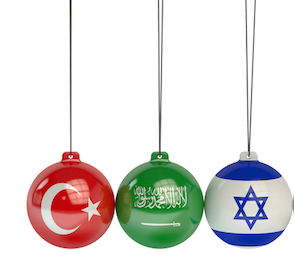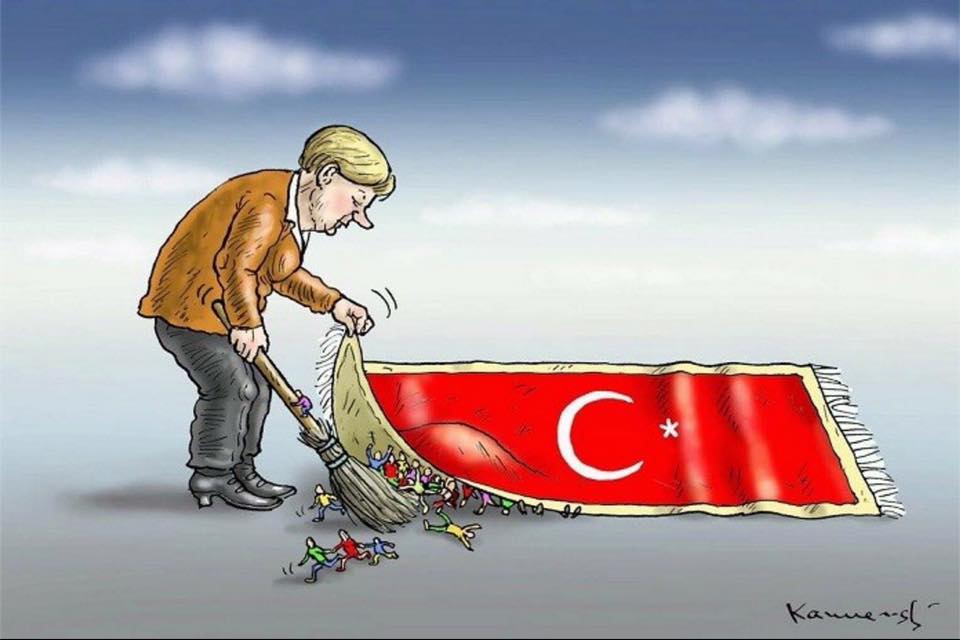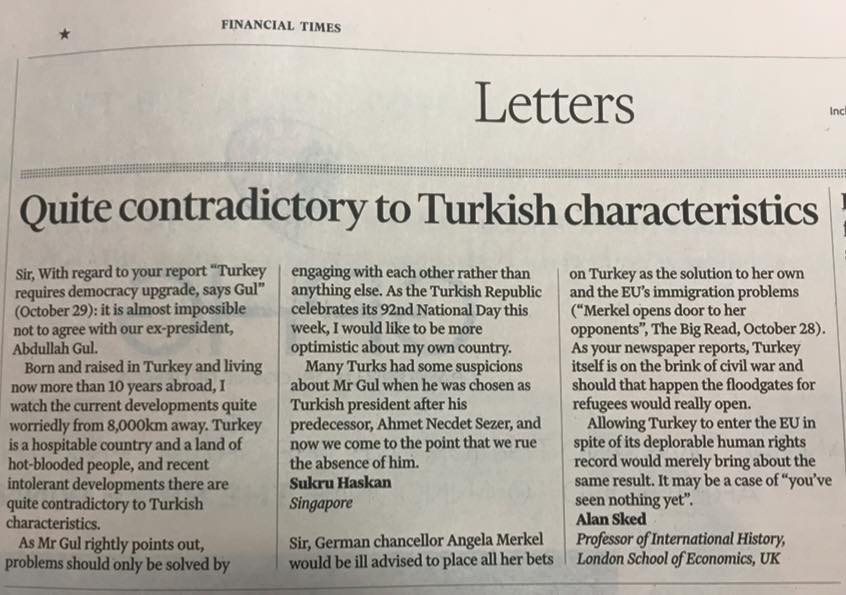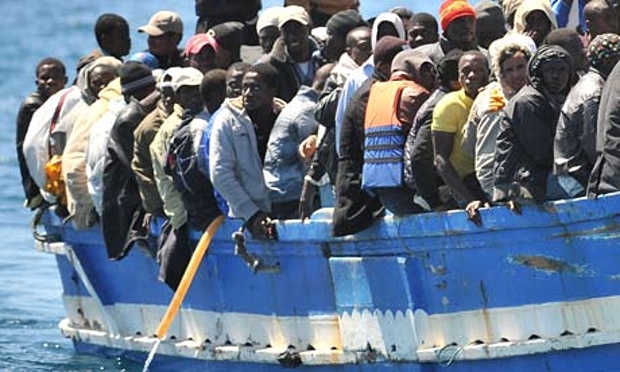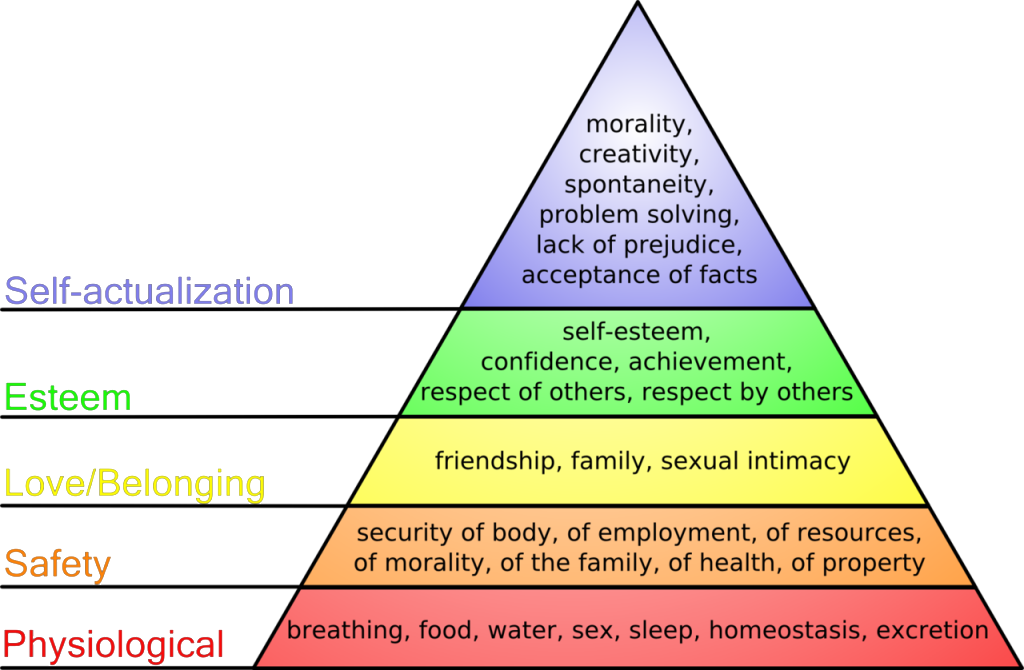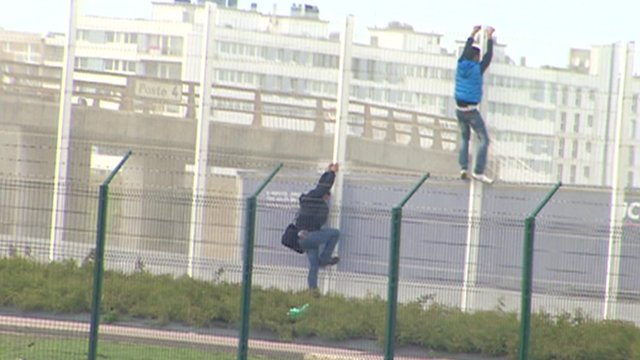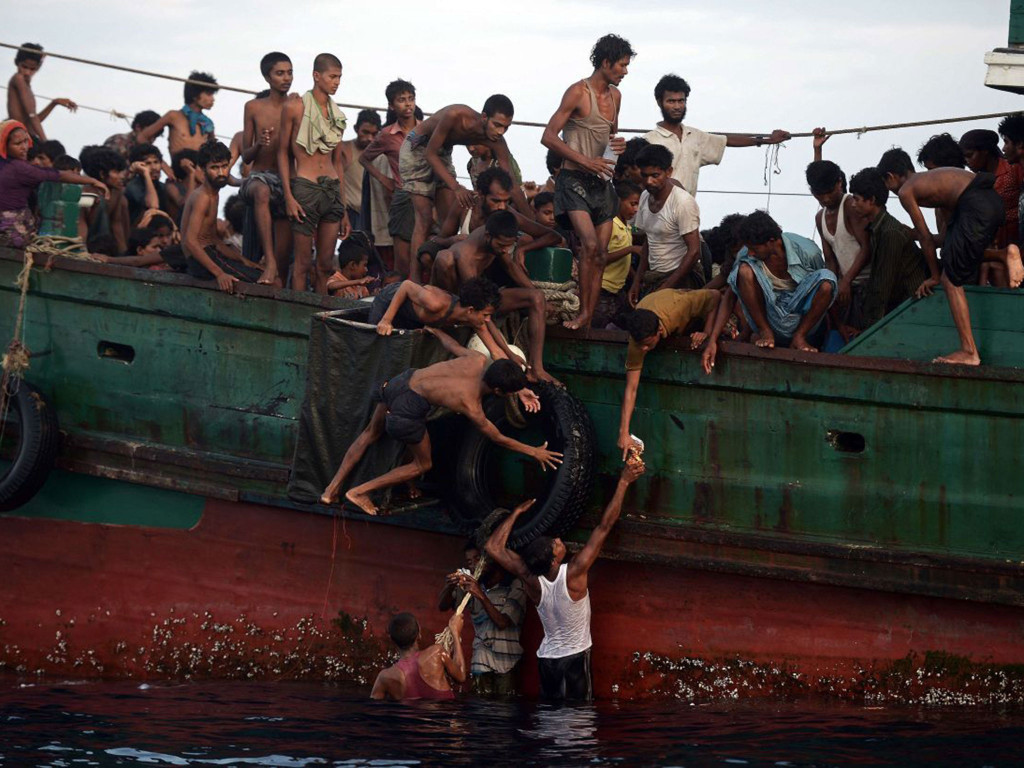The migrant crisis has been ongoing without a proper solution for some time now, and this week Chancellor Merkel visited Istanbul to cooperate with Turkey to address the issue.
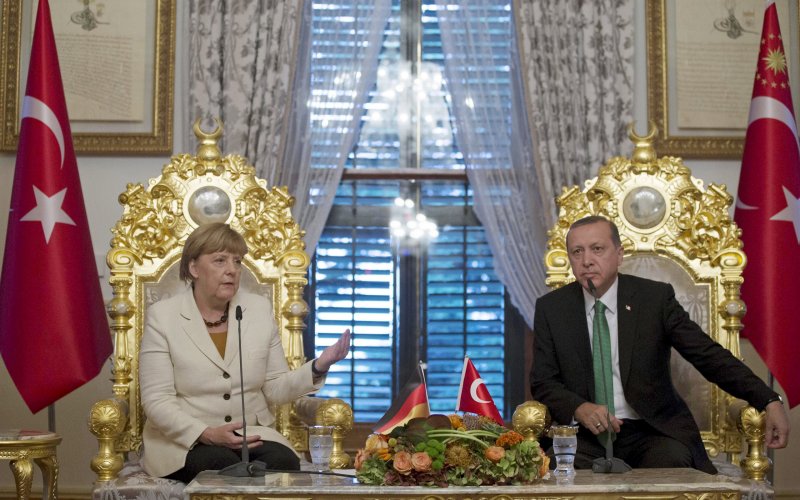
One may ask: “How come Turkey became an important source for a solution?”
I am trying to find these answers in my article this week. Or simply: “Is Turkey really an important variable in the solution equation?”
I personally respect Chancellor Merkel, as every single leader in the biggest EU economies has changed since the global financial crisis, except Angela Merkel.
For instance, Gordon Brown was replaced by David Cameron in the UK, Nicolas Sarkozy by Francois Hollande in France, Jose Zapatero by Mariano Rajoy in Spain, Silvio Berlusconi by Mario Monti and then Enrico Letta and Matteo Renzi in Italy.
There is no doubt that Chancellor Merkel is a strong leader. Even though I do not like her treatment of and attitude towards Greece in the last couple of years, I do believe that she has done a magnificent job in keeping Germany growing and increasing German influence in these very difficult times.
My French readers and friends may dislike this statement, but she is the sole de facto EU president today.
Unfortunately, relations between the EU and Turkey have been sour from the beginning.
Turkey’s application for EU membership dates back to 1987 and accession talks began only in 2005. Only one chapter out of 35 is currently closed, and many member states are opposed to opening new chapters. In other words, there is no accession progression at all right now.
Chancellor Merkel came up with ‘great’ incentives for Turkey to help the EU with the migrant crisis in her visit to Turkey. I will term these incentives something like “bribes” for Turkey:
- Visa liberalisations for Turkish citizens
- Revitalisation of talks between the EU and Turkey
- Three billion euros in aid
In exchange, the EU demands that Turkey issues work permits for Syrian refugees so that they can be included in the Turkish work force and that it cooperates fully with Frontex to make sure the refugees are not trespassing to EU borders.
Turkish citizens have waited for a long time to be able to travel freely within the EU and Turkish citizens are not really interested any more in revitalising talks with the EU. The EU has lost its ground among the Turkish population with its insincere politics over decades. In addition, even its member states are questioning its survival probability over the next ten years, and, more importantly, its functionality.
Chancellor Merkel is taking a calculated risk by granting some minor concessions to Turkey and this approach proves that the EU is not after a long term solution.
The EU wants Turkey to create a permanent living space for most of the Syrian refugees in a single country rather than sharing this burden. In return, the EU grants Turkey small and possibly temporary concessions.
Is this just another insincere EU policy towards Turkey? Indeed, it is!
Has the EU analysed the probable consequences in terms of unemployability, further economic and political instability, crime rate, etc. on Turkey after accepting 2.5 million refugees? Would granting visa liberalisation, one-off aid of three billion euros and opening up some chapters justify any possible long term consequences on Turkish politics and economics?
That’s where the problem begins. I would like to share a paragraph from my article, “Would you like to be in the same boat?” published in August about how I would like to see Europe.
“Europe is the birthplace of the Renaissance: it brought humanism, art, development in science and policy, reform in education and self-awareness. I would expect the same Europe to bring intelligence, know-how, education, sanitation, water, healthcare and other basic human needs to these countries. Instead, politicians are proudly talking of extra fencing, dogs and police officers. Unfortunately, these measures were not really helpful and I’m afraid that they will not be helpful going forward either.”
Unfortunately Europe’s great ideology, its vision of the desired unity, has been non-existent for some years now. Of course, Turkey will grant some work permits and will help these migrants.
But it is not just the duty of Turkey. It is the duty of humanity.
Granting work permits to over 2.5 million people in a single country is not a solution. The EU wants to sweep the problem under the rug and very likely, as Turkey is a leading hand-made rug producer, Turkey has been chosen to replace the duty of the rug here!
Another insincerity from Europe has been the delay in the publication of a European Union report on Turkey until after the November election. This report is about Turkey’s human rights and free speech.
The European Union has been losing its influence for some time now and the UK is preparing for a referendum on whether or not to stay in the union.
I personally would like to see the EU stronger, more sincere and, more importantly, a true representative of its ancestors, where the Renaissance attributes of humanism, art, and development in science and policy are manifested.
I hope Turkey rejects these unnecessary and insincere proposals, not to secure a better deal, but to get some much wanted respect in the world arena, along with a fair solution to the whole Syrian migrant population.
All the best from Singapore.
Sukru Haskan
Twitter:@sukru_haskan
